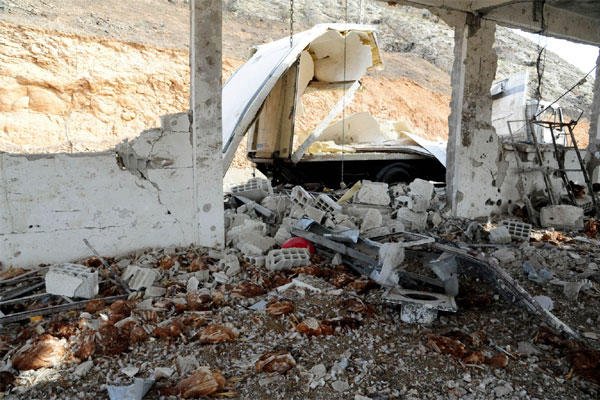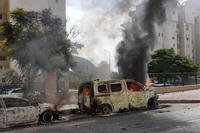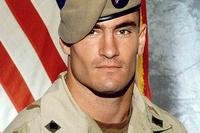The U.S. military has developed a range of plans to support "moderate" Syrian rebel groups short of putting boots on the ground to end the civil war and counter the chemical weapons threat, Defense Department officials said Monday.
The Pentagon's chief spokesman said the U.S. military is "fully prepared for a range of contingencies" after Syrian officials charged that Israeli warplanes carried out bombing raids against targets north of the capital about 10 miles from the Lebanese border.
"It's our job to be ready and we are," said George Little, the Pentagon's chief spokesman.
Little answered questions from reporters a day after United Nations investigators had "clarified" charges by Carla Del Ponte, a member of the UN Independent Commission of Inquiry on Syria, who had said the Syrian opposition -- and not the forces of Syrian President Bashar al-Assad -- appeared to be responsible for the use of chemical weapons.
Del Ponte, a former UN war crimes prosecutor, said Sunday on Swiss television that the nerve agent sarin "was used on the part of the opposition, the rebels, not by the government authorities." However, UN officials later said there was no "conclusive evidence" that chemical weapons had been used, or who might have been responsible.
"We find it highly likely that chemical weapons, if they were in fact used in Syria -- and there is certainly evidence that they were -- that the Assad regime was responsible," said White House Press Secretary Jay Carney.
Little said that the use of chemical weapons by the rebels could not be completely ruled out, but added that if they were used "it's very likely that the Syrian regime would be responsible."
Israel would neither confirm nor deny responsibility for the airstrike, which was the second in the past three days and the third this year aimed at preventing the transfer of Iranian-supplied Fateh 110 missiles to the Hezbollah faction in Lebanon.
The 29-foot ground-to-ground Fateh missiles are capable of delivering a 1,000-pound warhead and have a range of about 200 miles, putting Tel Aviv and Jerusalem within reach. The missiles have been described as far more accurate than the Scud missiles that were used by Hezbollah in the 2006 border war with Israel.
Little declined comment on whether Israel gave the U.S. advance warning of the airstrikes, and it was not clear whether the airstrikes were delivered over Syrian territory or came from warplanes over Lebanon using standoff missiles to avoid Syria's air defenses.
Gen. Martin Dempsey, the chairman of the Joint Chiefs of Staff, has warned Congress that imposing a no-fly zone over Syria would involve going up against what he described as a "sophisticated" air defense system that Assad has acquired from Russia.
France, Britain and Israel have claimed that chemical weapons were used in Syria. U.S. intelligence agencies have also reported with "varying degrees of confidence" that nerve agents may have been used in small amounts.
President Obama has said that the use of chemical weapons would amount to crossing a "red line" that could prompt U.S. military action, and advocates in Congress for supporting the rebels have called on the administration to arm the rebels and impose a no-fly zone.
"We need to have a game-changing action," Sen. John McCain (R-Ariz.) said on Fox News Sunday. "And that is no boots on the ground, establish a safe zone" and supply weapons "to the right people in Syria."
One of the concerns about arming the rebels has been that the weapons might fall into the hands of factions backed by Al Qaida. However, Little said "we are able to work with a number of opposition groups" that he described as "moderate."
Last month, Secretary of State John Kerry met in Turkey with Gen. Salim Idris, a defector from Assad's forces who now heads the Free Syrian Army. Idris pledged that any weaponry supplied by the U.S. would not go to Islamist extremists.
On Monday, Kerry met at the Pentagon with Defense Secretary Chuck Hagel before Kerry went to Moscow in an effort to get President Vladimir Putin to drop his support of the Damascus regime.
Russia and China have used their veto power in the Security Council to block United Nations efforts at arranging a ceasefire to end the civil war, now in its third year, that the UN estimates has cost more than 70,000 lives.





























